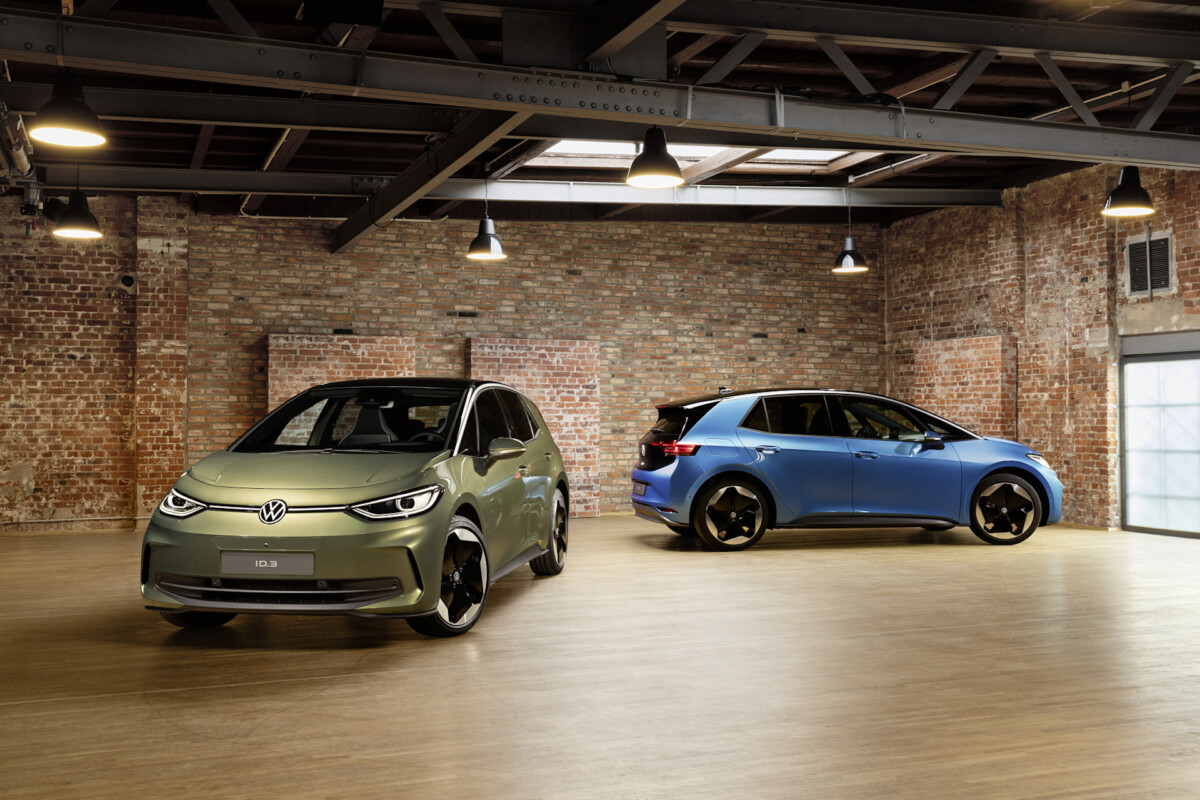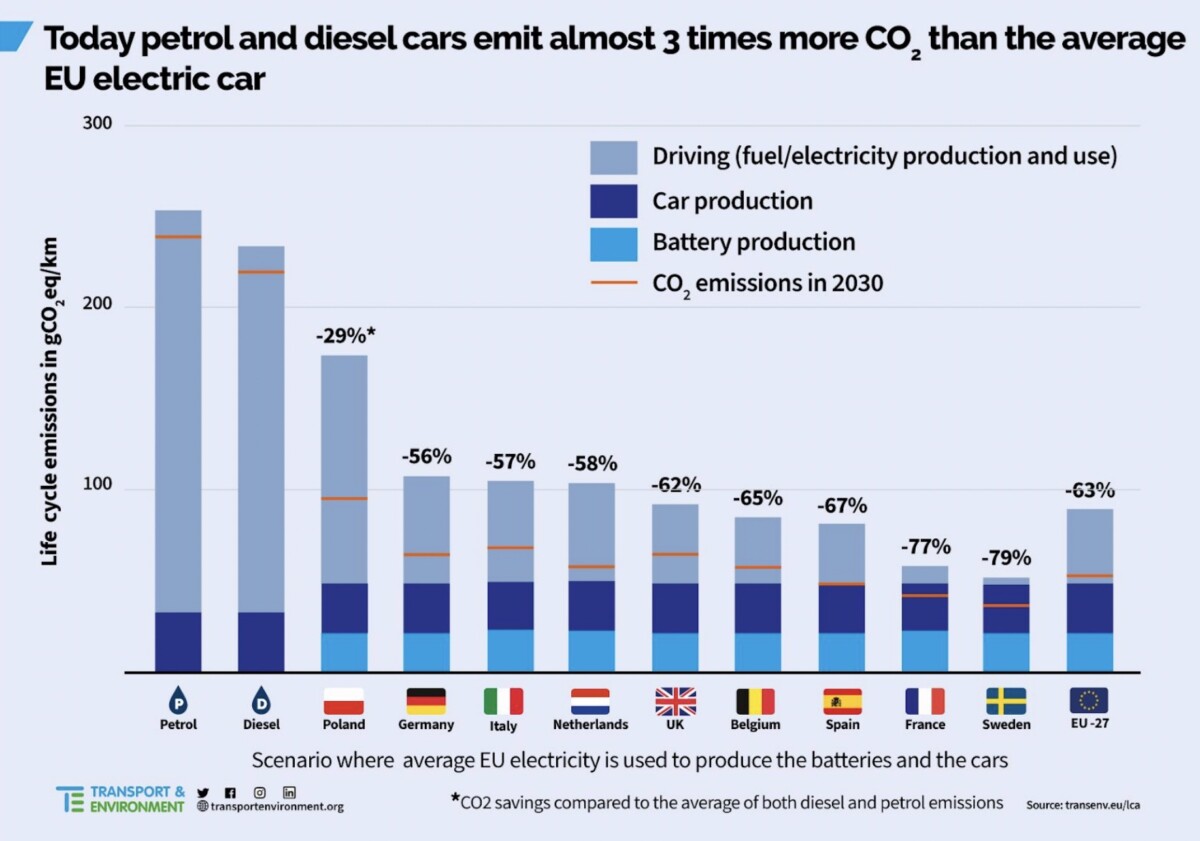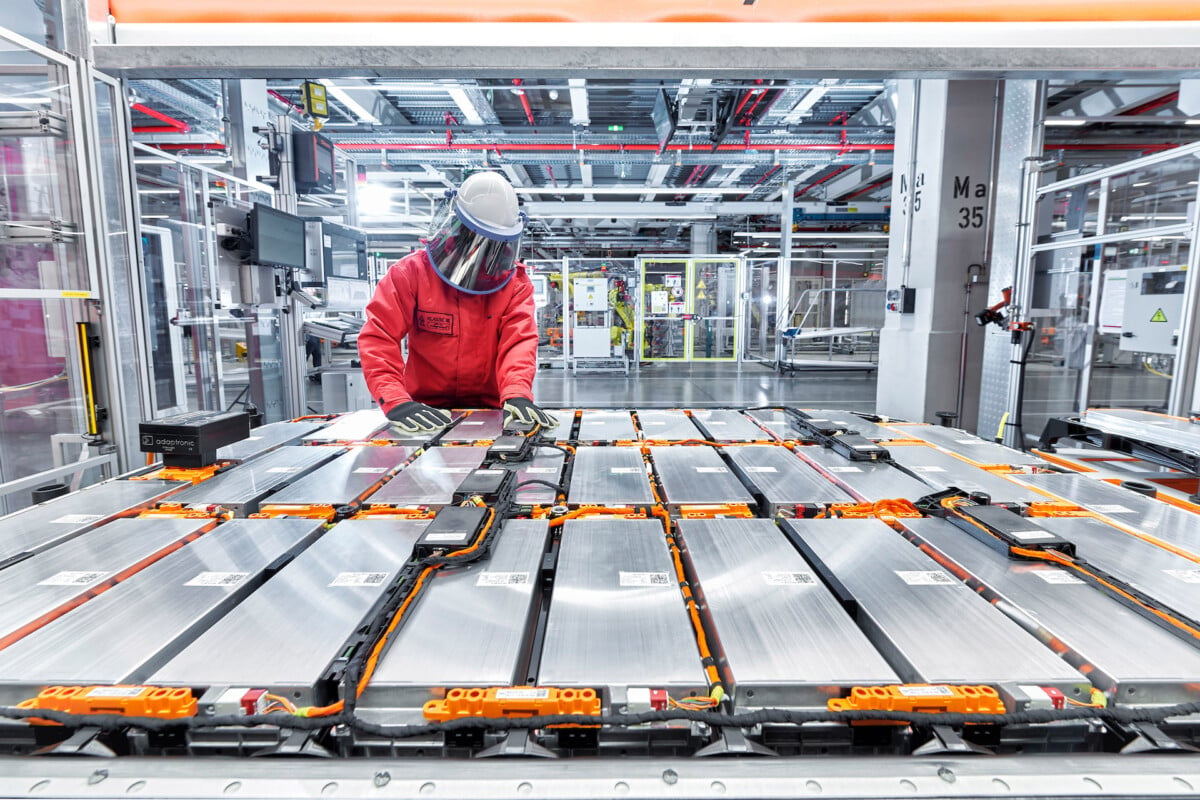This is a typical argument of anti-electric cars: they would emit more polluting emissions than a thermal car over their life cycles, in particular because of the manufacturing of their batteries. A postulate already contradicted by numerous studies around the world, and this German association adds another layer. Especially since this study goes further: even recharged with coal, an electric car pollutes much less than a thermal one.
Let’s not hide our faces: yes, an electric car pollutes. The manufacturing of the car and its battery pollutes, the production of the electricity necessary for its power supply pollutes. However, it is necessary to put things into perspective: this assessment is incommensurate with what a gasoline or diesel car will emit over its life cycle, and we are not even talking about the gains in terms of public health.
This is a non-negotiable fact, which has already been discussed extensively on Frandroid, but a new German study sheds new light on it. The VDI association, a group of German engineers, calculated the polluting emissions of four compact cars (one electric, one plug-in hybrid, one gasoline and one diesel) over 200,000 km, including manufacturing.
Up to 35% difference
The figures are clear: after 200,000 km, a compact electric car like Volkswagen ID.3 will have emitted 24.2 tonnes of CO2 since its manufacture. Surprisingly, a plug-in hybrid competitor (PHEV) will not emit much more, at 24.8 tonnes of CO2 – a result which surprises us, given the numerous studies proving the nonsense of this engine. But it is true that everything depends on the use made of it, and the regularity of the recharge.

Things get much more difficult with the 100% thermal versions, since a compact diesel will release 33 tonnes of CO2 over this period and a petrol model 37 tonnes. This is a difference of 26% and 35% respectively compared to the electric version!
The electric car wins in the end, whatever its energy source
The German association goes further and communicates on the “tipping point” from which an electric car will become cleaner than a thermal counterpart. The study estimates it at 90,000 km with Germany’s current energy mix, whose electricity production still depends enormously on fossil fuels (between 300 and 400 g of CO2 released to produce one kWh of electricity).

With production based on renewable energies only, this mileage would increase to only 65,000 km. Conversely, even in a country where electricity would be produced exclusively from fossil fuels (which Poland or China are close to, with around 700 g of CO2 per kWh for the first), with gas, coal or even gasoline, this milestone would increase to 160,000 km. It’s certainly a lot more, but let’s look on the bright side: even in the worst-case scenario, an electric car will pollute less than a thermal equivalent over its life cycle. An observation already shared by other studies.
Why does an electric car recharged with coal pollute less than a thermal car? Quite simply thanks to the efficiency of electric motors, approximately three times more efficient than internal combustion engines. In other words, an electric car consumes approximately 3 times less energy than a thermal car to travel the same number of kilometers.
And it’s only going to get better
How to envisage the future? Dr. Joachim Damasky, president of VDI, has his own idea: “Only greenly produced batteries and their raw materials make electric mobility climate-friendly. »
Before adding: “In the future, the industry will have great leverage for more climate-friendly mobility, which is unfortunately not yet used today. We therefore need more production of Made in Germany batteries, better battery recycling and rapid development of renewable energies. »

Joachim is right, and we have good news for him: his wishes should come true. Battery factory projects are flourishing in Europe, with local and even Chinese players. As for improving the energy mix, Germany is aiming for 100% renewable energy in 2035.
We will simply have a small comment to make on its desire for recycling: certainly, it is a process already at work (and very effective), but the WWF recently indicated that this process would not have a determining influence on the environmental respect of batteries before many years, due to lack of necessary raw materials.

Let’s go further: to significantly reduce production emissions from electric cars, it is also necessary to reduce the size of their batteries. As we have seen, a huge electric American pick-up can be more polluting over its life cycle than a hybrid car. A paradigm shift which will be facilitated by an ever denser and ever faster charging network.
To sum it all up: electric cars will pollute less and less, as countries abandon fossil fuels for renewable energies. Whether for recharging these cars, but also for their production (and in particular that of their batteries).
Want to join a community of enthusiasts? Our Discord welcomes you, it is a place of mutual help and passion around tech.
